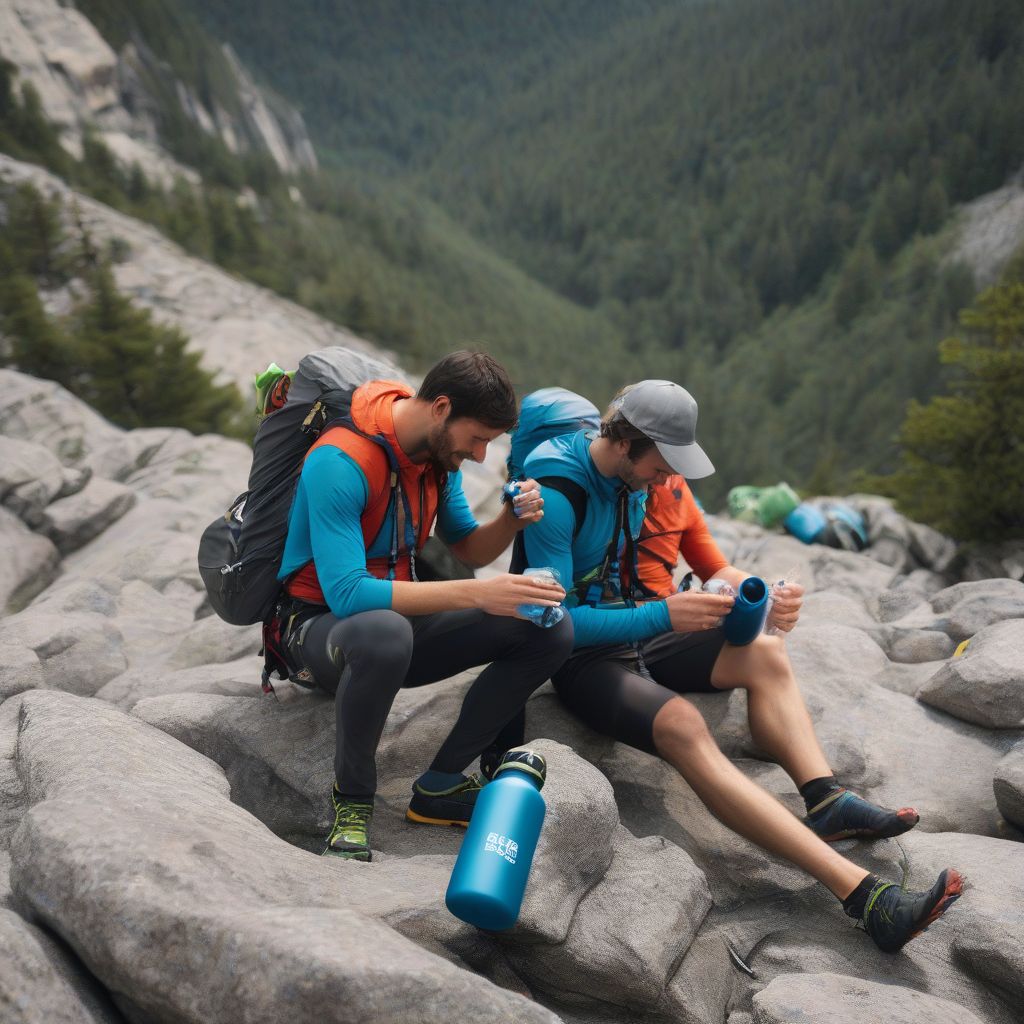Picture this: you’re on a challenging climb, the summit in sight, but your energy is waning, and you’re feeling the effects of dehydration. Every step feels heavier. This scenario is all too common for climbers who don’t prioritize their hydration and nutrition. As a certified nutritionist and meal prep coach, I’m here to equip you with the knowledge to conquer those peaks, feeling energized and strong from basecamp to summit and back down.
Understanding the Demands of Climbing
Climbing, whether it’s rock climbing, mountaineering, or ice climbing, is physically demanding. You’re working against gravity, your muscles are constantly engaged, and you’re exposed to the elements. This exertion leads to increased energy expenditure, fluid loss through sweat, and electrolyte depletion.
The Importance of Hydration
Dehydration can quickly sabotage your climb. It leads to:
- Decreased Performance: Even mild dehydration can significantly reduce your strength, endurance, and cognitive function, impairing your decision-making at crucial moments.
- Increased Perceived Exertion: Everything feels harder when you’re dehydrated, making the climb feel even more challenging.
- Headaches and Fatigue: These are common symptoms of dehydration that can quickly derail your climb.
- Heat-Related Illness: In extreme cases, dehydration can lead to heat exhaustion or heat stroke, which are serious medical emergencies.
Hydration Strategies for the Climb:
- Pre-Hydrate: Don’t wait until you’re thirsty to start drinking. Begin hydrating the day before your climb, aiming for half an ounce to an ounce of water per pound of body weight.
- Consistent Sipping: Carry water or an electrolyte beverage with you and take frequent sips throughout your climb, even when you don’t feel thirsty.
- Electrolyte Replenishment: Sweating depletes electrolytes like sodium, potassium, and magnesium, which are essential for muscle function and hydration. Choose an electrolyte drink or supplement to replenish these lost minerals.
- Monitor Urine Output: A simple way to assess your hydration status is to monitor your urine color. Aim for pale yellow or clear urine, which indicates adequate hydration.
 Climbers Staying Hydrated
Climbers Staying Hydrated
Fueling for Endurance
Just like a car needs fuel to run, your body needs calories to power your climb. Without adequate nutrition, you’ll experience:
- Muscle Fatigue and Cramping: Carbohydrates are your body’s primary source of energy during exercise. When your glycogen stores are depleted, your muscles fatigue more quickly, and you may experience cramps.
- Reduced Endurance: Without a consistent supply of energy, your body will struggle to maintain the prolonged effort required for climbing.
- Difficulty Concentrating: Your brain relies on a steady supply of glucose (from carbohydrates) to function optimally. Low blood sugar can lead to difficulty focusing and making decisions.
Nutrition Strategies for the Climb:
- Carbohydrate Focus: Choose easily digestible, carbohydrate-rich foods for your climb. Good options include:
- Energy bars
- Energy gels
- Trail mix
- Dried fruit
- Pretzels
- Protein for Muscle Support: Protein helps repair and rebuild muscle tissue. Include a small amount of protein in your snacks and meals, such as:
- Jerky
- Nuts and seeds
- Protein bars
- Real Food When Possible: If you’re on a longer climb where you can take breaks, consider packing more substantial, real food options like:
- Sandwiches on whole-grain bread
- Fruit (bananas, apples, oranges)
- Hard-boiled eggs
Putting It All Together: A Sample Meal Plan
The Day Before Your Climb:
- Hydrate: Drink plenty of water throughout the day.
- Dinner: Salmon with quinoa and roasted vegetables (carbohydrates, protein, healthy fats)
Morning of Your Climb:
- Breakfast (2-3 hours before): Oatmeal with berries and nuts (carbohydrates, protein, fiber)
- Hydrate: Continue drinking water or an electrolyte beverage.
During Your Climb:
- Every Hour: Consume 200-300 calories and 16-24 ounces of fluids.
- Snacks: Energy bars, gels, trail mix, dried fruit, pretzels
- Water and Electrolyte Beverages: Alternate between plain water and an electrolyte drink.
Post-Climb Recovery:
- Replenish Fluids: Continue drinking water or an electrolyte beverage.
- Recovery Meal: A balanced meal with carbohydrates, protein, and healthy fats within 2 hours of finishing your climb. Example: Chicken breast with brown rice and a side salad.
[amazon bestseller=”climbing food”]
Listen to Your Body
Remember, these are just general guidelines. Every climber is different, and individual needs may vary based on factors such as:
- Duration and Intensity of Climb: Longer, more strenuous climbs will require more calories and fluids.
- Altitude: At higher altitudes, you need to drink even more fluids to compensate for the dehydrating effects of the thinner air.
- Climate: Hot, humid conditions will increase sweat rates, requiring you to drink more fluids.
Conquer Your Climbs With Confidence
Staying hydrated and properly fueled is crucial for successful and enjoyable climbing experiences. By following these evidence-based strategies, you can optimize your performance, prevent dehydration and fatigue, and reach new heights.
Do you have any tried-and-true nutrition or hydration tips for climbing? Share your experiences in the comments below!
